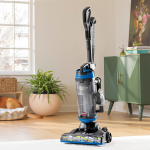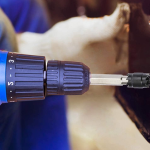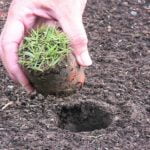Find the perfect Best Sickle for Cutting Grass to clear brush, harvest crops, and maintain your lawn with ease, focusing on blade quality and handle comfort.
The seemingly simple sickle remains one of the most effective and indispensable gardening tools available, particularly when tackling overgrown patches or harvesting dense crops where power tools are too cumbersome. Choosing the right Best Sickle for Cutting Grass is crucial, as the wrong blade material or handle design can turn a quick chore into a back-breaking ordeal. Unlike string trimmers, a quality sickle offers unparalleled precision and control, allowing you to selectively clear weeds or cut grass close to the ground without damaging nearby plants. This blend of precision and efficiency makes it a favorite among gardeners, farmers, and landscapers seeking a reliable, low-tech solution for yard maintenance.
Whether you need a Japanese-style serrated blade for light weeding or a heavy-duty brush clearing tool, our guide will help you navigate the options. We’ve assessed key factors like steel quality, handle ergonomics, and overall balance to ensure you invest in a tool that will last for years. Moreover, we’ll recommend top models that excel in various tasks, from simple lawn maintenance to heavier brush clearing. Keep reading to find the perfect fit for your gardening needs, allowing you to work smarter, not harder, in your yard. Ultimately, the right Best Sickle for Cutting Grass makes all the difference.
Top 5 Best Sickle for Cutting Grass
7 Best Sickle for Cutting Grass Review
1. Zenport K310 Brush Clearing Sickle with 9-Inch Carbon Steel Blade
The Zenport K310 is a heavy-duty tool explicitly designed for clearing thick brush and dense vegetation. It is an excellent fit for property owners or professionals needing a powerful hand sickle for clearing pathways and removing stubborn overgrowth. The main selling point is the premium 9-inch SK5 Japanese high-carbon steel blade, known for retaining a sharp edge and offering immense strength for powerful cutting. This combination of size and material makes it highly effective for heavy landscaping tasks.
The sickle features a lightweight yet sturdy 9-inch aluminum handle, which reduces overall weight without sacrificing the power needed for thick stalks. In addition, the soft rubber grip enhances comfort, allowing for prolonged use in the garden—a crucial detail for large projects. However, because the blade is carbon steel, it requires diligent cleaning and oiling after use to prevent corrosion, a minor drawback common to high-performance blades. Ultimately, its versatility also extends to harvesting, making it a reliable all-around tool for gardeners needing serious clearing power.
In summary, the Zenport K310 is the top choice for those focused on brush clearing and heavy weeding. It offers a powerful, compact solution for thick vegetation. If your primary need is light weeding or trimming around delicate plants, a smaller, serrated option might be better. This model is truly built to handle the tough work, delivering excellent leverage and durability for the serious laborer.
| PROS | CONS |
|---|---|
|
|
2. Zenport K208P Harvest Sickle with Plastic Handle
The Zenport K208P is a specialized Japanese-style harvest sickle, perfectly suited for detailed work rather than heavy clearing. This tool is primarily for gardeners and small farmers who focus on harvesting berries, lavender, and vegetables, as well as for light, delicate weeding. The main selling point is its food-safe design, featuring a stainless steel blade and plastic handle, meeting requirements for food processing. Its smaller 6.5-inch curved blade and light serrations ensure a clean slice through thinner stems and crops.
The blade is crafted from stainless steel, which offers excellent resistance to rust and corrosion, significantly simplifying cleanup compared to carbon steel models. Additionally, the bright orange handle ensures high visibility, making it easy to locate in thick foliage or a cluttered workspace. However, the plastic handle, while durable and meeting food safety standards, offers less ergonomic comfort and grip security than a rubber or hardwood handle during extended use. It excels at its specific purpose—clean, light cutting—but would struggle with thick, woody weeds or brush.
Overall, the Zenport K208P is the Best Sickle for Cutting Grass if your job involves delicate harvesting and light garden trimming. Its stainless steel construction and high visibility make it highly practical for frequent, sanitary use. While not the choice for clearing an entire field, it is indispensable for detail-oriented gardeners and those needing to cut crops cleanly.
| PROS | CONS |
|---|---|
|
|
3. KEYI Steel Grass Sickle, Clearing Sickle, Manganese Steel Blade
The KEYI Steel Grass Sickle is a traditional, multi-purpose tool designed for broad use across gardening, weeding, and farming tasks. This sickle is ideal for those who prefer the classic feel and durability of a hardwood handled tool and require a strong blade for diverse vegetation. The key selling point is the manganese steel blade, which is renowned for its great tensile strength and ability to maintain a sharp edge, providing substantial cutting power for tough grass and vines.
The 13.8-inch hardwood handle is designed to allow for maximum leverage and force, providing a more balanced and powerful swing compared to shorter models. Its ergonomic design means it feels natural in the hand, which is vital for reducing strain when using the tool over large areas. However, the manganese steel, while tough, may require a slightly different sharpening approach than standard carbon or stainless steel. Furthermore, the total length of 17.3 inches makes it a formidable choice for general yard work, including edging and undergrowth harvesting.
For users seeking a durable, traditional design with raw cutting power, the KEYI Sickle is an excellent choice. Its blend of high-strength manganese steel and a long hardwood handle makes it an effective, dependable Best Sickle for Cutting Grass for extensive clearing and general farming applications.
| PROS | CONS |
|---|---|
|
|
4. Z & G Billhook Sickle Garden Tools Machete Knife
The Z & G Billhook Sickle is essentially a hybrid tool, blending the precision of a sickle with the hacking power of a small machete. This tool is built for heavy-duty clearing, specifically targeting thick brush, small saplings, and tough weeds. The key selling point is its dual nature as both a sickle and a billhook machete, making it one of the most versatile clearing tools on the market. It features a heavy-duty carbon steel blade that can withstand significant impact and abuse during tough yard work.
Its short, 14-inch length provides excellent control and is much more manageable than a full-sized machete for undergrowth work. The carbon steel construction is highly durable, designed for heavy-duty use in farming and brush clearing. However, the alloy steel handle material, while sturdy, is not as comfortable as a soft-grip handle and can transmit more vibration during extended, forceful cutting. For those who frequently need to remove thick brush, choosing the right accessories, like a durable pair of weed torches (used as an internal link anchor), is just as important as the tool itself.
This Z & G model represents the Best Sickle for Cutting Grass when your tasks lean toward heavy brush removal and challenging clearing projects. It’s a rugged, durable choice for laborers who need a tool that can transition easily between slicing dense grass and chopping small, woody growth.
| PROS | CONS |
|---|---|
|
|
5. SHANFEEK Grass Sickle with Sawtooth Japanese Weeding Hoe
The SHANFEEK Grass Sickle is a versatile, Japanese-style weeding tool designed to handle a variety of garden chores. It is best suited for general gardening, including weeding, loosening soil, and light pruning. The main selling point is its sawtooth blade, which combines the slicing motion of a sickle with the grip of a serrated edge, allowing it to cut through fibrous weeds efficiently. The blade is made from high-toughness stainless steel, ensuring both durability and superior resistance to corrosion.
The tool is equipped with a comfortable, hard solid wood handle designed with ergonomic principles in mind, offering a comfortable and secure grip for long periods. A unique aspect is its dual functionality, resembling a weeding hoe/sickle combination that allows for shallow tilling to remove weed roots. Since it performs multiple tasks, it’s an excellent addition to your garden tool collection, perhaps alongside quality pruning shears. The use of stainless steel means maintenance is minimal—simply wipe it down after use.
Overall, the SHANFEEK Grass Sickle is the Best Sickle for Cutting Grass for the home gardener who wants a single, multi-purpose tool for light cutting and weeding. Its combination of a sawtooth stainless steel blade and comfortable wooden handle makes it a practical, low-maintenance option for regular garden upkeep.
| PROS | CONS |
|---|---|
|
|
6. Japanese Gardening Weeding Sickle Nejiri Kama
The Japanese Nejiri Kama is a traditional, specialized weeding sickle known for its unique design and effectiveness in grass removal. It is ideal for gardeners who prefer an authentic, high-craftsmanship tool for light to moderate weeding. The key selling point is its “Nejiri Kama” (twisted sickle) shape, which is specifically engineered to place the sharp steel blade horizontally against the ground. This allows the user to cut the grass and weeds right at the root by digging or “shaving” the soil, which helps prevent immediate regrowth.
Crafted by a real blacksmith factory in Japan, this sickle is a light and easy-to-use short-type tool, weighing just 0.3 pounds with a total length of 12 inches. This lightweight design makes it highly practical for quick, sustained grass-cutting jobs without causing significant arm fatigue. While the steel is sharp, it’s not designed for thick, woody material; its purpose is fine root-cutting and skimming the soil surface. This focus on cutting from the root makes it highly efficient for prolonged weed control in garden beds.
This is arguably the Best Sickle for Cutting Grass when the goal is long-term weed management through root removal. Its traditional design and low weight provide a comfortable, effective solution for regular garden maintenance, offering a tangible connection to traditional Japanese craftsmanship.
| PROS | CONS |
|---|---|
|
|
7. Weeding Sickle, Serrated & Plain-Edged Combined Steel Scythe 51-Inch Adjustable Long Handle
The YEELOR Weeding Sickle represents a modern, long-handled approach to grass cutting, bridging the gap between a handheld sickle and a traditional scythe. This tool is best suited for gardeners and farmers with large areas, yards, or fields to clear, as it allows for upright weeding that significantly reduces back strain. The central selling point is its 51-inch adjustable handle and unique 2-in-1 blade design, offering unmatched versatility in a single tool.
The high-strength stainless steel handle is bend-resistant and rust-proof. The blade features a combined design: a straight edge for gliding through soft weeds and a wavy (serrated) edge for slicing through tough weeds like thistles and reeds. Furthermore, the sharp tip is effective for pulling out deep-rooted weeds. With three adjustable lengths (up to 51.7 inches), users can customize the tool to their height and the task at hand, whether working in a large field or a small potted area. It weighs only 1.6 pounds, making it surprisingly light for a long-handled tool.
This model is the Best Sickle for Cutting Grass for anyone prioritizing ergonomics and long-reach clearing. Its multi-edged blade and adjustable length make it a highly effective replacement for multiple shorter tools, ensuring you can tackle various weeds without the bending and fatigue associated with handheld sickles.
| PROS | CONS |
|---|---|
|
|
How to Choose Best Sickle for Cutting Grass
The Best Sickle for Cutting Grass is a curved hand-held agricultural tool typically used for harvesting grains or cutting forage grass. For the modern gardener, a sickle is essential for precise weeding, clearing dense undergrowth where a lawnmower can’t reach, or harvesting thick-stemmed vegetables and herbs. Choosing the right one matters because the task dictates the tool—a heavy, sharp carbon-steel sickle is needed for brush, while a light, serrated stainless-steel one is ideal for delicate harvesting. This ensures efficiency and prevents unnecessary strain.
Blade Material and Edge Type
The material of the blade determines its sharpness, strength, and maintenance needs. High-carbon steel offers the sharpest edge and best durability for heavy clearing but is prone to rust, requiring oiling. Stainless steel is rust-resistant and easier to clean, making it better for harvesting and light work. A plain edge is best for clean slicing (like scything grass), while a serrated edge grips tough, fibrous weeds more effectively, preventing slippage. Always check if the steel has been properly quenched for toughness.
Handle Design and Length
The handle is your primary connection to the tool, directly impacting comfort and leverage. Shorter handles (around 6-9 inches) offer greater control for detail work and are perfect for small flower beds. Longer handles (12 inches or more), including adjustable scythe styles, provide the necessary leverage for powerful swings when clearing large areas or thick brush. Look for ergonomic grips—whether soft rubber or contoured hardwood—to minimize blistering and fatigue during prolonged use, which is critical for efficiency.
Intended Use and Blade Curvature
Consider what you’ll cut most often. A pronounced curve is best for gathering and slicing grass or grain in a smooth sweeping motion, much like traditional scythes, while a straighter, thicker blade (like a billhook) is better for chopping woody stems and light brush. For delicate harvesting, a smaller blade with a tight hook is ideal for snipping stems without harming the crop. Matching the tool to the job is key for safety and reducing effort.
Durability and Maintenance
A quality sickle should last for years, often generations. Durability comes down to the blade-to-handle connection (full tang is best) and the overall material quality. Since carbon steel rusts easily, you must be prepared to clean and oil it after every use. Stainless and manganese steels are more forgiving, making them the superior low-maintenance choice. Always inspect the connection point before buying, ensuring it can withstand powerful swings and twisting forces.
Weight and Balance
The weight of the sickle profoundly affects user fatigue and cutting power. A heavier tool generates more momentum, making it more effective for thick brush, but it will tire you out faster. A lighter, better-balanced tool is preferable for repetitive, sustained tasks like cutting grass or detailed weeding, as it allows for quicker, more precise movements. The balance point should be close to the handle for maximum control and comfort.
Advanced Techniques with the Best Sickle for Cutting Grass
Masterful use of the Best Sickle for Cutting Grass involves more than just swinging the blade; it requires using proper technique (used as an internal link anchor) for efficient cutting. For example, when cutting tall grass or weeds, use your non-dominant hand to gather the vegetation and hold it taut. This tension allows the sickle’s blade to slice cleanly through the bunch. Keep the blade angle shallow—almost parallel to the ground—to maximize the cutting edge contact and ensure you cut the plant at its base, preventing quick regrowth.
For woody brush or small saplings, switch to a chopping motion closer to the base, utilizing the heavier end of a billhook-style sickle to generate power. Always wear heavy gloves and protective eyewear. Remember, the sickle’s primary efficiency comes from its sharp edge, not brute force; frequent, light sharpening is necessary to maintain performance and reduce the physical effort required.
How to Use Best Sickle for Cutting Grass
Using a sickle efficiently requires proper technique to maximize your swing and minimize effort. The following steps outline the practical usage for cutting grass and weeds.
- Preparation and Safety: Always wear thick gloves and protective eyewear. Ensure the area is clear of debris or rocks that could damage the blade. Sharpen the sickle blade lightly before beginning, and check the handle connection for security.
- Core Usage & Best Practices: Grip the handle firmly. Use your non-dominant hand to gather and pull the grass or weeds taut. Swing the sickle in a sweeping arc towards the base of the vegetation, using the curved blade to slice through the bundled stems. Do not hack; use a smooth, slicing motion for clean cuts.
- Optimization/Safety/Maintenance: For grass, keep the blade close to the ground for a low cut. For weeding, try to hook the blade under the root crown to lift the weed out. After use, immediately clean the blade, removing all sap and moisture. Always dry a carbon steel blade and apply a light coat of oil to prevent rust.
- Troubleshooting & Pro Tips: If the blade snags or requires too much force, it needs sharpening. If you’re cutting a large area, take short breaks to stretch your back and arms. To prevent rust on carbon steel, store the sickle indoors, away from damp garden sheds.
Frequently Asked Questions
What is the difference between a sickle and a scythe?
A sickle is a short-handled hand tool with a single blade used with one hand for cutting weeds, grass, or crops by hand, often in tight spaces. A scythe, conversely, is a much larger tool with a long, two-handed snath (handle) and a long blade, designed to be swung across a wide area to clear large fields of grass or grain efficiently. The sickle is for precision and small areas; the scythe is for volume.
What is the Best Sickle for Cutting Grass in tight spaces?
The Best Sickle for Cutting Grass in tight or confined spaces is typically a smaller, Japanese-style weeding sickle with a blade length under 7 inches. These models offer superior maneuverability in rock gardens, flower beds, or between vegetable rows where a large blade would risk damaging nearby plants. Look for models with a comfortable, non-slip handle for maximum control.
How do I sharpen a serrated sickle blade?
Sharpening a serrated sickle blade requires a specialized, usually tapered, sharpening tool like a diamond rod or a round file. You must sharpen each scallop individually from the flat side of the blade (not the curved, cutting side). Do not use a standard flat whetstone, as this will destroy the serrated edge. Sharpening serrated edges takes significantly more time and care than sharpening a plain edge.
Are carbon steel or stainless steel sickles better?
It depends entirely on the task. Carbon steel sickles are generally sharper and stronger, making them superior for heavy brush clearing, but they must be kept clean and dry to prevent rust. Stainless steel sickles are better for harvesting and light trimming because they are rust-resistant, low-maintenance, and hygienic, making them the better all-around choice for the casual gardener.
Can a sickle be used for edging a lawn?
Yes, a sickle can be an effective manual tool for edging a lawn, particularly for giving a clean, crisp finish along paths, driveways, or garden beds. Use a straight-edged sickle and hold it vertically to slice into the turf, creating a defined edge. However, for long stretches, a specialized tool like a half-moon edger is usually more efficient. For a larger area, consider a dedicated tool like a half moon edger.
Final Thoughts
Choosing the Best Sickle for Cutting Grass hinges on identifying your primary need: brush clearing, detailed weeding, or harvesting. The quality of the blade’s steel, especially its edge retention and corrosion resistance, and the ergonomic comfort of the handle are the two most important factors for long-term satisfaction. Remember that a carbon steel blade demands religious cleaning, while stainless steel is more forgiving. Investing in a well-made sickle ensures you have a powerful, versatile tool for decades of garden maintenance.
For most buyers who need a reliable, heavy-duty tool for clearing brush and general yard work, the Zenport K310 offers the best balance of performance and value thanks to its SK5 carbon steel blade and comfortable grip. If you need a hygienic, low-maintenance option primarily for harvesting crops or light, dedicated garden trimming, choose the Zenport K208P for its food-safe stainless steel and highly visible design. The right Best Sickle for Cutting Grass is waiting to make your yard work significantly easier.
Amranul is a highly experienced product review writer with a passion for helping readers make smart, informed purchasing decisions. Since 2018, he has specialized in thoroughly researching and analyzing a wide range of products to deliver honest, in-depth reviews. Amranul combines technical accuracy with clear, engaging writing to break down complex product features and highlight true user value. Look for his reviews to find reliable information and expert insights you can trust before you buy!












